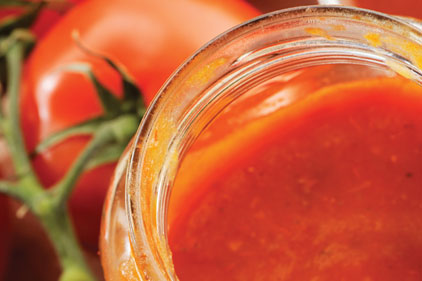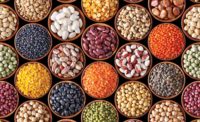Power of Oregano
Treatment of tomatoes with the essential oils of three herbs reduces salmonella contamination.

The Journal of Food Science published a study by the U.S. Department of Agriculture and China’s Tianjin University of Science and Technology in March. An abstract is online.
“Previous papers on gaseous essential oils dealt mostly only with reduction of human pathogens, not about effects on quality,” said Xuetong Fan, research food technologist with the USDA’s Agricultural Research Service and one of the study’s three authors.
They looked separately at oregano, cinnamon bark and mustard and confirmed the pathogen-reducing properties of some herbs noted in prior research. However, the oils have more commonly been applied in liquid than gas form, and most trials have been in vitro rather than on fresh produce.
It is a potential alternative to traditional chlorine rinses for some commodities, Fan said.
“Gas has some advantages over washes because gas can diffuse into small crevices on the surface of produce where bacteria hide and chlorine can’t penetrate,” he said.
The researchers tested cherry tomatoes in jars for effects on quality over 21 days of storage, and salmonella reduction for shorter periods. They also ran in vitro tests.
“These oils may be beneficial in terms of microbial reduction, but some may have an adverse effect on the quality of fruit,” Fan said. “Mustard caused discoloration, loss of firmness and loss of lycopene and vitamin C.”
Oregano was a different story.
“The fruit was firmer after a treatment with oregano oil and had a higher vitamin C and lycopene content,” he said. “Oregano not only benefits against bacteria, it can also preserve the quality of tomato fruit.”
Cinnamon caused no damage at the tested levels.
The results seem promising but the prospect of commercial applications would depend on a much larger scale of trials outside the lab setting, Fan said. Moreover, essential oils can damage some commodities, including lettuce and spinach.
Fan's coauthors are Juan Yun and Xihong Li of Tianjin University.
Looking for a reprint of this article?
From high-res PDFs to custom plaques, order your copy today!





